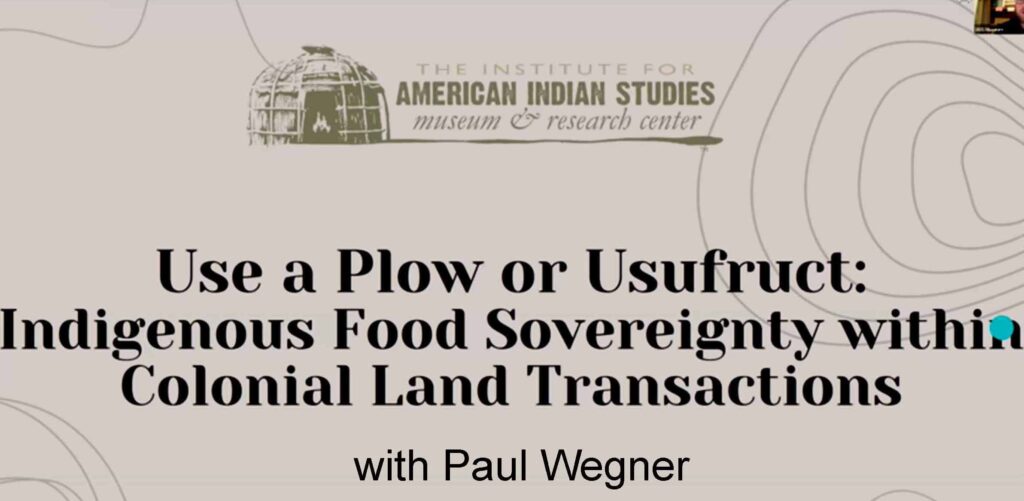
Digging through seventeenth and eighteenth century land transactions between colonial and indigenous people in New England uncovers clauses that allow native people to retain hunting, fishing, fouling, foraging, growing rights within these lands. Such clauses are seen throughout deeds in the Northeast, and encapsulate an overlooked dynamic between native people and colonists. Click here for a recording of Assistant Director Paul Wegner’s hour-long presentation by Institute for American Indian Studies Museum and Research Center on March 17, 2024.
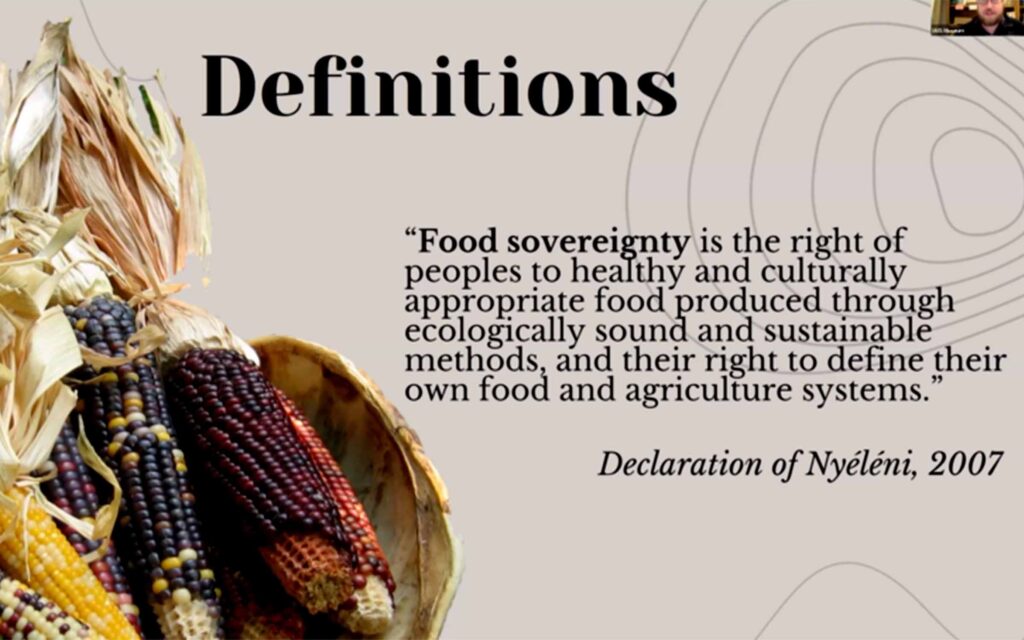
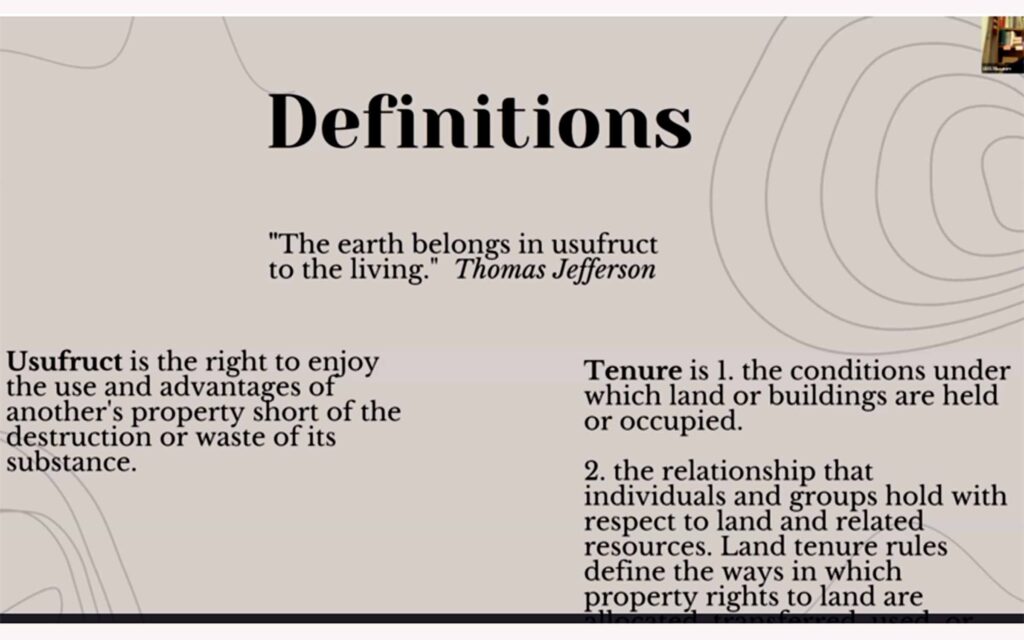

Centered around land tenure there are two opposing ideologies presented in these transactions which go beyond the mere concept of land ownership. Food sovereignty is the right of a people to access healthy and culturally appropriate food produced through ecologically sound and sustainable methods and their right to define their own food and agricultural systems.


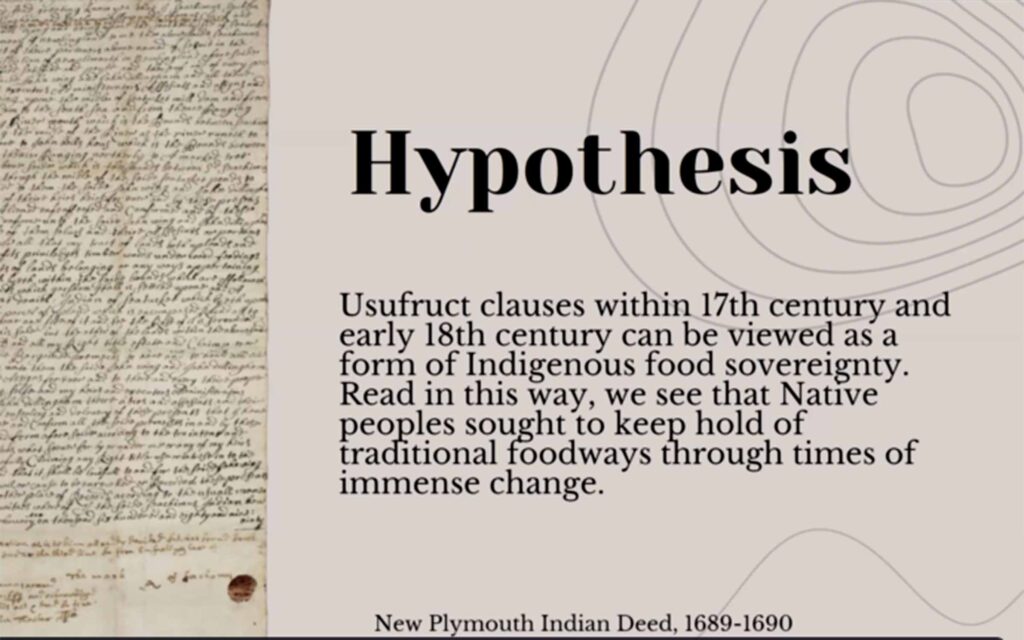
Winthrop is going off of this idea of this English concept of wasteland and kind of adding to it, saying that the lands that they’re coming across, that these settlers in this time period are coming into are, in fact, wastelands, because no one is improving them. This idea of improvement becomes key to this concept of civil right, as John Cotton, writing in 1630, called God’s Promise to his plantation that English people, have a Biblical or Christian right to the land because they have seen that no one has possessed it.
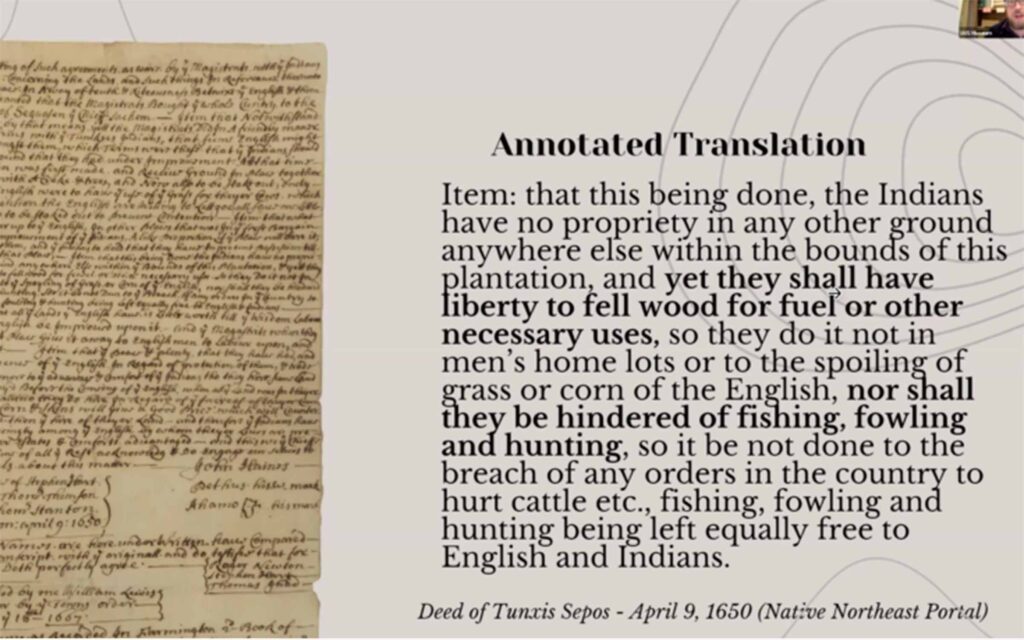
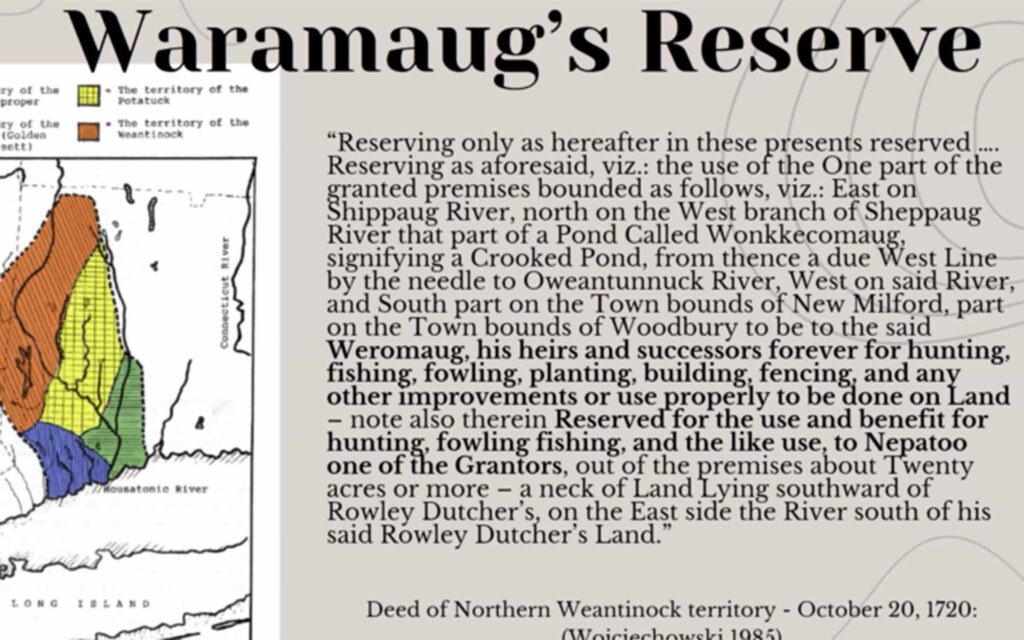

After King Philip’s War, which took place in in 1675, there was a huge change in the Massachusetts Bay Colony in how indigenous people worked with the English in these kind of land transactions, and somewhere in the 1650s to the 1680 we started to see this change and the use of English language to gain not only what they already had the natural rights, but the civil rights, and and even into the 1680s in Massachusetts we see indigenous people no longer selling land but actually leasing it. (Above, right) Paul Wegner responds to questions on the Zoom session.
